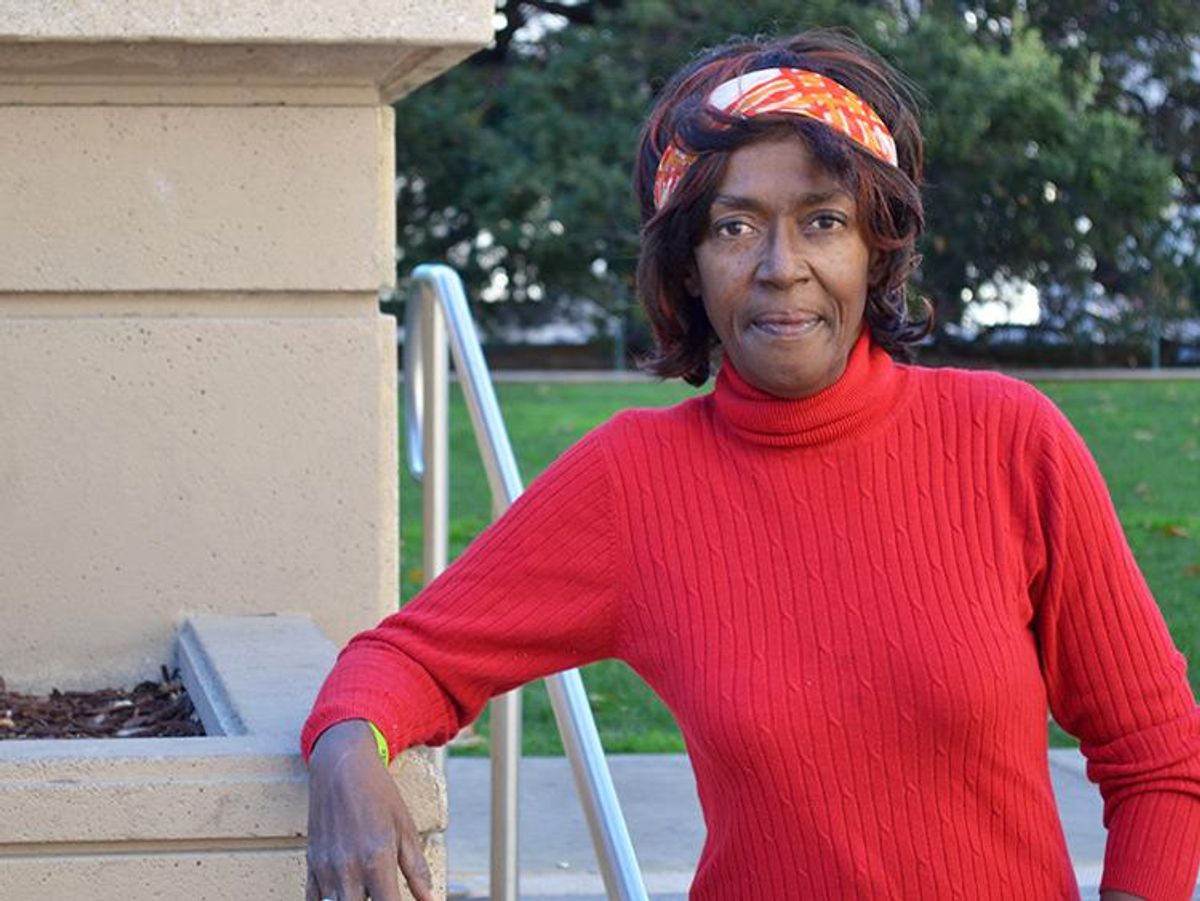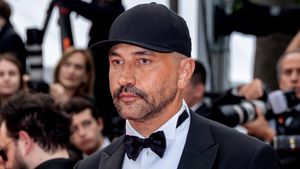San Francisco leads the country in combating HIV and its predominantly white gay male population may be the first to get to zero new HIV infections. But just 12 miles away, across the San Francisco Bay, it’s a whole other story — and a whole different epidemic.
That’s something Loren Jones has known for three decades.
“In 1985,” she told a newspaper in 2010, “we were not getting information on this side of the Bay, because it was perceived that this disease was being spread through the gay, white male population.”
“The structural disparities of race, economics, gender, and class seen between San Francisco, and Oakland—one of her many shadow cities — are an obvious microcosm, of those seen across the nation,” says Jones now. “We've had to fight hard to get more than the left overs that trickle down to us.
Like other heterosexual African-American residents in Oakland at the time, Jones had no idea she could even get HIV. Once she was diagnosed with “this nasty mystery San Francisco gay man's disease,” she slipped into denial, telling herself: “I was stupid to take that dumb test anyway. I was fine. Perfectly healthy.”
Besides, she tells Plus now, she had more urgent issues to deal with. She lost her six-year-old daughter because they were living out of their car. Not long after she lost the car too. “I spent my days wandering around the streets of Berkeley, California … I walked and slept on those streets alone for two years, bounced from hangout house to house, with occasional shelter stays in the winter.”
Jones began “what was for me treatment, at a clinic I found through the only newsletter that was dedicated and written by and for HIV+ women. WORLD was a bodaciously bold name for a group of women who were flying blind and being trampled in a sea of men and treatments designed for men.”
Jones would go on to work with those women at WORLD — Women Organized to Respond to Life-Threatening Diseases — and become an active member of Positive Women’s Network-USA. Looking back at the early 90s, Jones says now, “I have to admit that I kind of miss those days. You can't tell a street cowgirl what to do.”
“There have always been excellent, culturally appropriate homegrown [organizations] serving the Oakland, Berkeley, Richmond area,” Jones says now. “AIDS Project of the East Bay, WORLD, and Cal-PEP [California Prostitutes Education Project] have been our local heroes forever. Nothing can replace the unlikely cast of characters that served the community they represented. But we in the East Bay are nothing if not creative.”
Because “meds of the late eighties were so toxic, and so filled with bazaar side effects,” Jones “waited for the one a day pill to come out,” before beginning antiretroviral treatment.
I didn't even start taking meds for the first 26 years that I had the virus,” Jones says, joking, that she couldn’t just “punk out and die,” and “I make maybe one good decision every 20-25 years in my life!”
“The day I realized that I wasn't going to die from HIV,” says Jones, who saw her CD4 count go from 272 to 1590, “was one day when I was wandering down the street — as usual — and it occurred to me that my weight had gone back up … I could walk more than a block without sitting down.”
But that day was a long way from where Jones’ HIV story began. Her daughter had grown and become a mother to a six-year-old of her own. The two aren’t close but Jones says her daughter has come to terms “with her less than picture perfect mother in a serious, but as compassionate way as can be expected and I see the hope of another generation in my 6, and 5-year-old grandchildren, chirping in the background when we talk briefly on the phone.”
Jones says she’s lived “a life of failed poor decisions,” but other activists think she’s being too hard on herself. Sure, Jones has faced issues like poverty and homelessness — as have many others — and she lost custody of her daughter. But she never gave up and now gives back to others.
Mark Misrok, co-founder of the National Working Positive Coalition says that Loren, now in her sixties, is “astounding” because she continues “to put herself on the front line in Oakland as an advocate for women living with HIV [and] long-term survivors. [She] has long shared generously of her own story of extraordinary challenges and barriers to survival. She's an incredible inspiration — and has been for many years, unheralded.”
“I hope that other women are inspired,” Jones says, then makes an unusual turn, adding, “by the fact that yes, life is not a fairytale. On a day to day basis, life is hard. Really hard. But: If you live long enough you might get to find out that even after the hardest night, there is a strength that effortlessly open our eyes in the morning, that is not our own. We do change. We do grow willingly or not.”
But, she adds, there are limits to that growth as well. “For myself there will be no miraculous transformation from paisley tie-die gypsy Annie Oakley to the Virgin Mary. I still cringe with recognition whenever my church small groups, start talking about Mary Magdalene.”
Despite that, she acknowledges, “I have also gotten to live long enough to really and truly have very few regrets. I have been successfully, and securely housed in the same apartment building for over 25 years now. I have beautiful children and grandchildren and have been able to re-invent myself … into a woman who can use her years of real suffering to work with other women … to break through not just our own individual walls of injustice, but broaden that light to cover a world of women still hidden in the dark.”
















































































